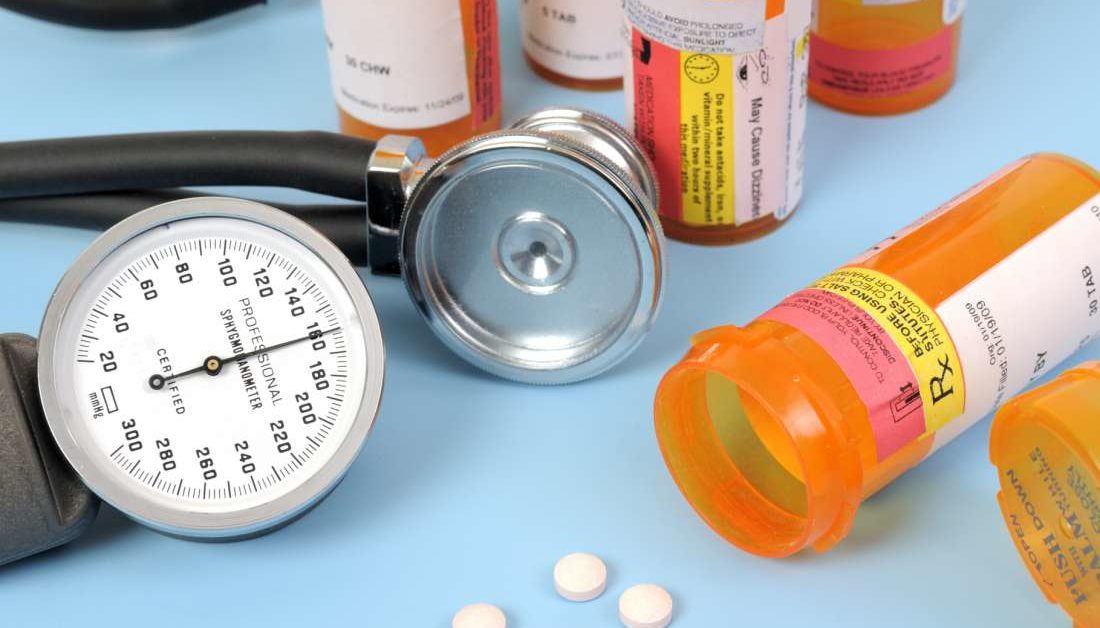

How Blood Pressure Meds Can Effect Incontinence
If you have urinary incontinence or your incontinence problem seems to be getting worse, you might want to take a close look inside your medicine cabinet. Your blood pressure meds could be the reason why you are leaking urine. This article will examine how different types of antihypertensive medications can cause incontinence, especially when they are combined with diuretics.
Alpha Blockers
Alpha blockers, such as Cardura and Flomax, relax the muscles in small arteries and veins to improve blood flow and lower blood pressure. Alpha blockers also relax the bladder muscles so that urine can flow out more easily. This is helpful for men who struggle to urinate due to an enlarged prostate, but women can develop occasional urine leakage or stress incontinence. In fact, women can be 5 times more likely to develop urinary incontinence when they take alpha blockers to manage blood pressure!
Calcium Channel Blockers
Calcium channel blockers, such as Norvasc and Cardizem, also help blood vessels to relax and open. However, calcium channel blockers can relax the bladder so that it does not completely empty during urination. When the bladder stays overfilled, you can have frequent or constant dribbling of urine. This is called overflow incontinence, because the bladder never completely empties. Calcium channel blockers can also cause you to urinate more frequently during the night, which is called nocturia.
ACE Inhibitors and Angiotensin Receptor Blockers (ARBs)
ACE Inhibitors, such as Capoten and Vasotec, help relax blood vessels and also tell the kidneys not to hang onto extra fluid. Angiotensin Receptor Blockers (ARBs), such as Cozaar and Diovan work the same way even though they have different names. Unfortunately, both ARBs and ACE Inhibitors can cause symptoms of underactive bladder like hesitancy, slow urinary stream, and straining to void. This can reduce symptoms of urge incontinence with sudden, strong urges to urinate. At the same time, ACE Inhibitors and ARBs can cause stress incontinence as the bladder is not able to hold urine during physical movement. This can be a problem because a common side effect of ACE Inhibitors is a chronic dry cough.
Combination Medications
When a single medication is not sufficient to keep the blood pressure under control, the doctor may prescribe a combination therapy. Using low doses of two different medications can be more effective than high doses of a single medication with fewer side effects. A diuretic is often prescribed with a calcium channel blocker, alpha blocker, ACE inhibitor or ARB. Unfortunately, this can cause urinary incontinence or make it worse. In particular, adding loop diuretics to alpha blockers almost doubles the risk of urinary incontinence. Sometimes a thiazide diuretic can be combined with another medication into a single tablet for convenience. Some examples are:
| Antihypertensive medication/Thiazide diuretic combinations |
| Lotensin (Benazepril) and hydrochlorothiazide = Lotensin HCTCapoten (Captopril) and hydrochlorothiazide = CapozideVasotec (Enalapril) and hydrochlorothiazide = VasereticCozaar (Losartan) and hydrochlorothiazide = HyzaarMinipress (Prazosin) and polythiazide = Minizide |
Final thoughts on Blood Pressure Medication
Everyone responds differently to medications and many people will not have urinary side effects from the various medications described above. If you suspect that a medication may be causing or worsening incontinence, be sure to let your doctor know right away. That way, your doctor can determine whether these medicines should be adjusted or stopped, or if your treatment should be changed. Never skip doses or stop taking them without checking with your doctor first! If overnight incontinence persists despite your best efforts to stay dry, the SaniSnooze™ waterproof mattress is a good option. The fluid-resistant cover protects the supportive foam core to ensure maximum comfort and therapeutic sleep. SaniSnooze is the most convenient, cost-effective solution for incontinence, allowing users and caregivers to rest easily.
**The information on this site is not intended or implied to be a substitute for professional medical advice. If you are having a severe and sudden change in physical or mental health, please call 911, contact a local emergency facility or consult with your doctor. Always seek the advice of your physician or other qualified healthcare provider, and never disregard the advice given because of information you have received from our website.**
Our mission at SaniSnooze™ is to get you back to sleep faster. SaniSnooze™ will keep your mattress core clean and dry all night long.



